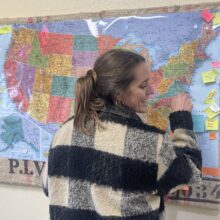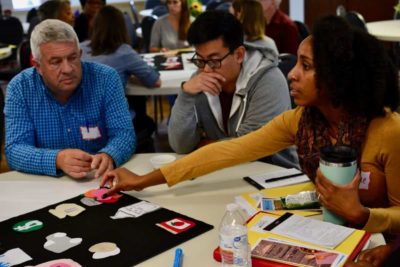|
|
The heat index is over 100 degrees while Veronica Watson, her cousin Cleshona Watson, and Resourceful Communities Faith and Food Coordinator Justine Post, pick ripe produce from Green Thumbs Victory Community Garden.
“Don’t pick it unless it’s red on the vine,” instructed Veronica Watson.
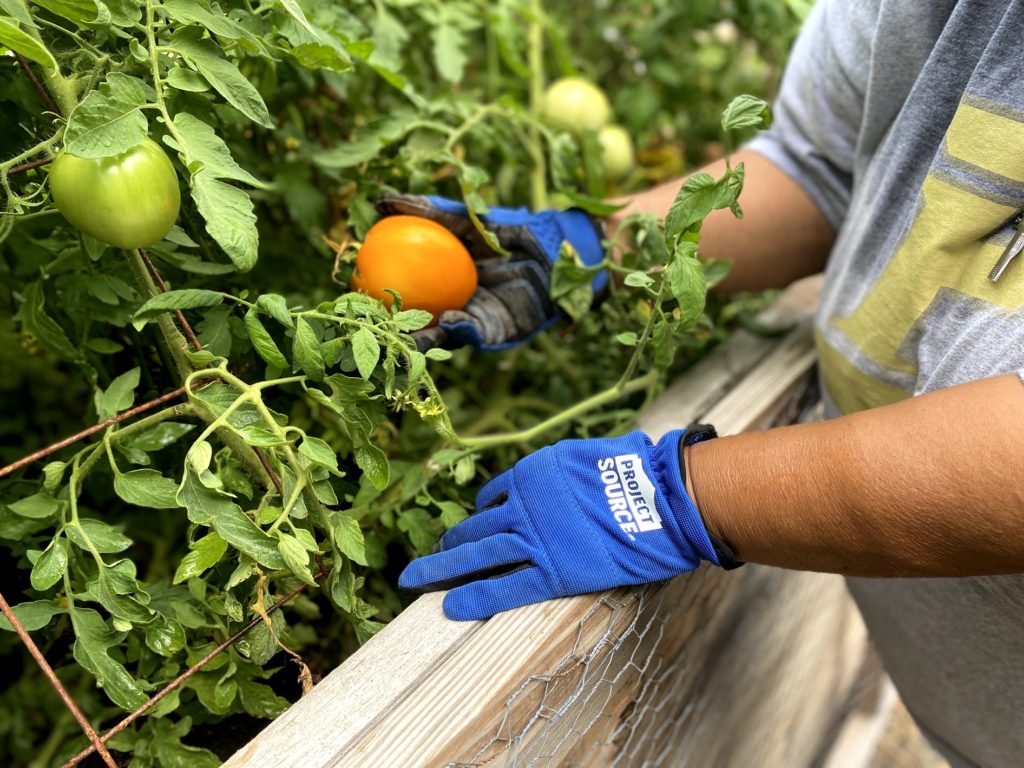
Veronica Watson of Green Thumbs Community Garden. Caroline Parker/EducationNC 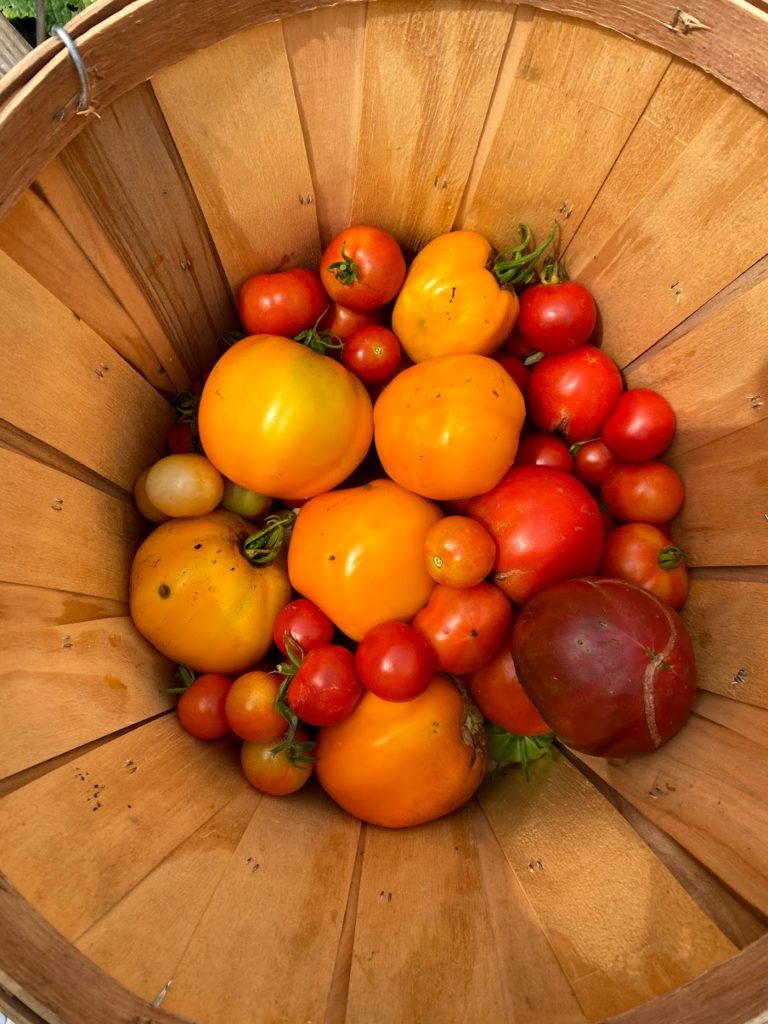
The day’s harvest at Green Thumbs Community Garden. Caroline Parker/EducationNC
The garden, located at McQueen Chapel United Methodist Church in Lee County, has seven raised beds, growing a variety of tomatoes, cucumber, squash, eggplant, peppers and more.
And that’s just the summer crop.
Next to the raised beds is a refrigerated trailer, which makes keeping and transporting produce much easier. The trailer, which came via an emergency grant in August 2020 from the Blue Cross and Blue Shield of North Carolina Foundation, was delivered through Resourceful Communities. There are also compost bins and rain barrels that help with irrigation.
Last year, the church distributed 450 food boxes and the refrigerated trailer was vital to this effort. The church’s food program also includes a 1-acre farm about 20 miles from the chapel Veronica Watson runs as well. She says the surrounding community has an aging population, and they deliver the food boxes to senior citizens and veterans.
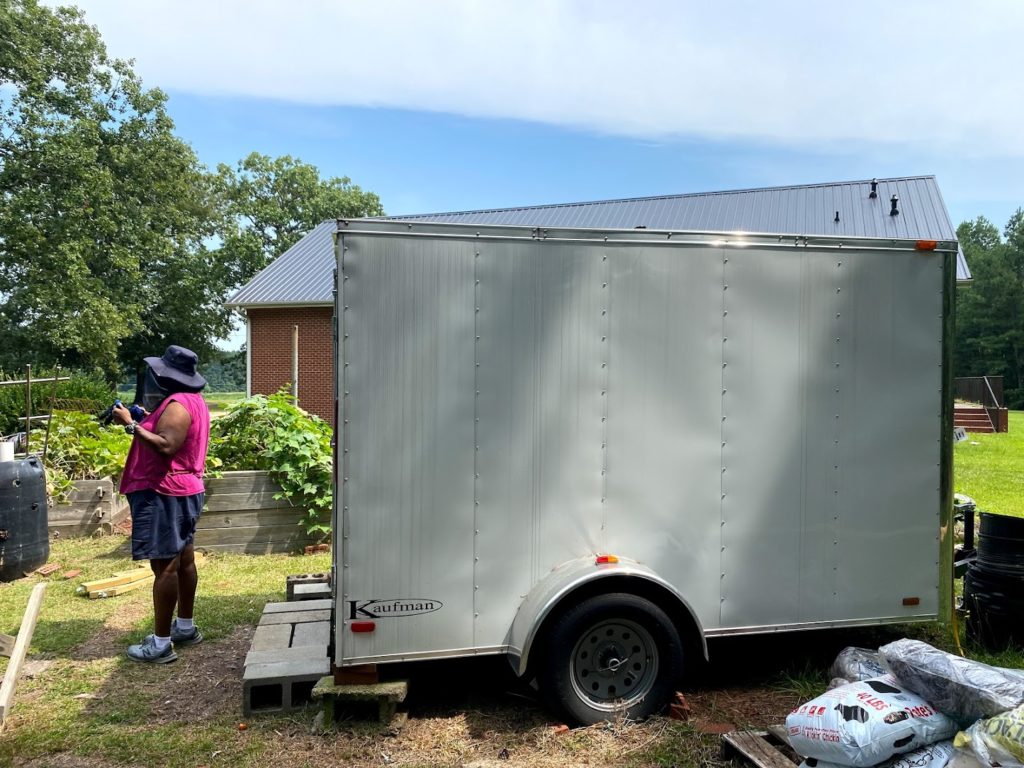
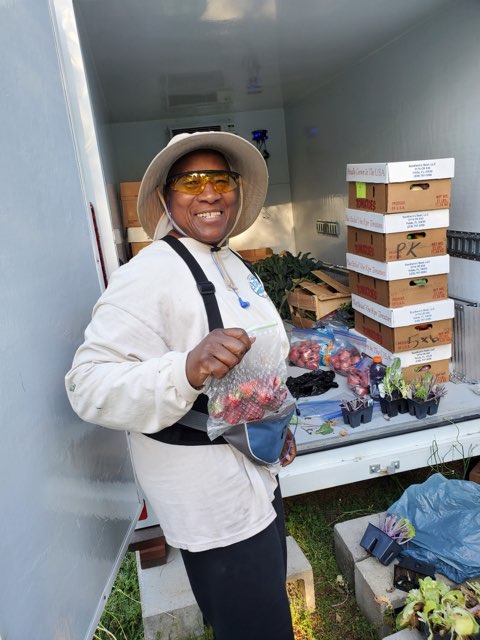
Volunteers during 2020 filling up the refrigerated trailer. Courtesy of Veronica Watson 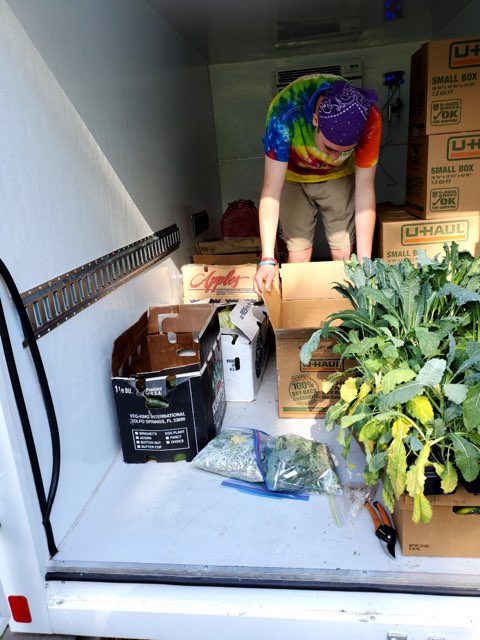
Volunteers during 2020 filling up the refrigerated trailer. Courtesy of Veronica Watson
Green Thumbs Victory Community Garden started in 2013 with help from The Duke Endowment. The grant offered funds to three rural churches in the area to create organic gardens and conduct classes on nutrition and health. When the money ran out in 2015, Veronica Watson sponsored the garden until Resourceful Communities provided $12,000.
Resourceful Communities sits under the umbrella of the The Conservation Fund and the initiative itself receives funding from The Duke Endowment. Resourceful Communities focuses on creating opportunities in rural areas while preserving the landscape, lifting people out of poverty, and celebrating each community’s special culture. This three-pronged approach — called the “triple bottom line” — was created to impact economic, environmental, and social justice benefits for all people.
Part of the programing from Resourceful Communities is about setting up the grantees for success. They do this by pairing funding with capacity-building. The staff works with grantees to create work plans, determine project budgets, identify resources for support, and design evaluation plans. Kathleen Marks, director of program strategies at Resourceful Communities, says faith-based rural community organizations are “small but mighty.”
During the pandemic, Marks recognized that churches and faith-based organizations have been at the center of relief and recovery efforts. They are anchor institutions — driving outcomes in the local food economy.
Marks said she is grateful for the support of The Duke Endowment, so that Resourceful Communities can best identify rural organizations helping their community food system.
“They make this work possible, and they have the vision and belief in robust local food economies with churches at the lead,” said Marks. “We’re also grateful to rural churches across North Carolina that inspire this work and that have stepped up and stepped in as always to serve their communities in such meaningful ways.”
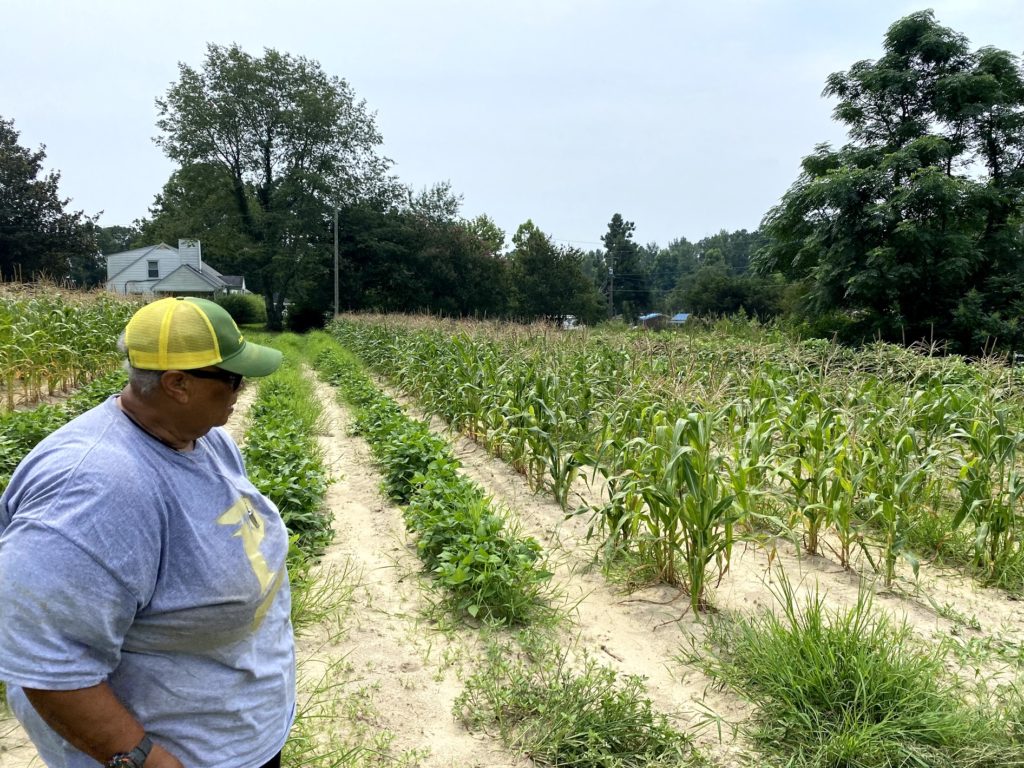
Veronica Watson knows how to take care of this garden — and the 1-acre farm that sits next to McQueen Chapel’s parsonage — because she grew up on a farm. The knowledge never left her. Her family harvested tobacco and cotton and kept their own garden on the side. She’s also taken classes with the North Carolina Master Gardener’s program to keep educating herself.
She has a personal mission as well: Retired from the Army, one of her goals with Green Thumbs Victory Community Garden is to get veterans involved. Her hope is for the garden to help those with PTSD.
The community garden has volunteers from the church and other congregations in the county. When she has youth working, she likes to ask them, “What are two things you learned in the garden today?”
She wants everyone to take something away from the Green Thumbs Victory Garden.
Editor’s note: The Duke Endowment supports the work of EducationNC.
